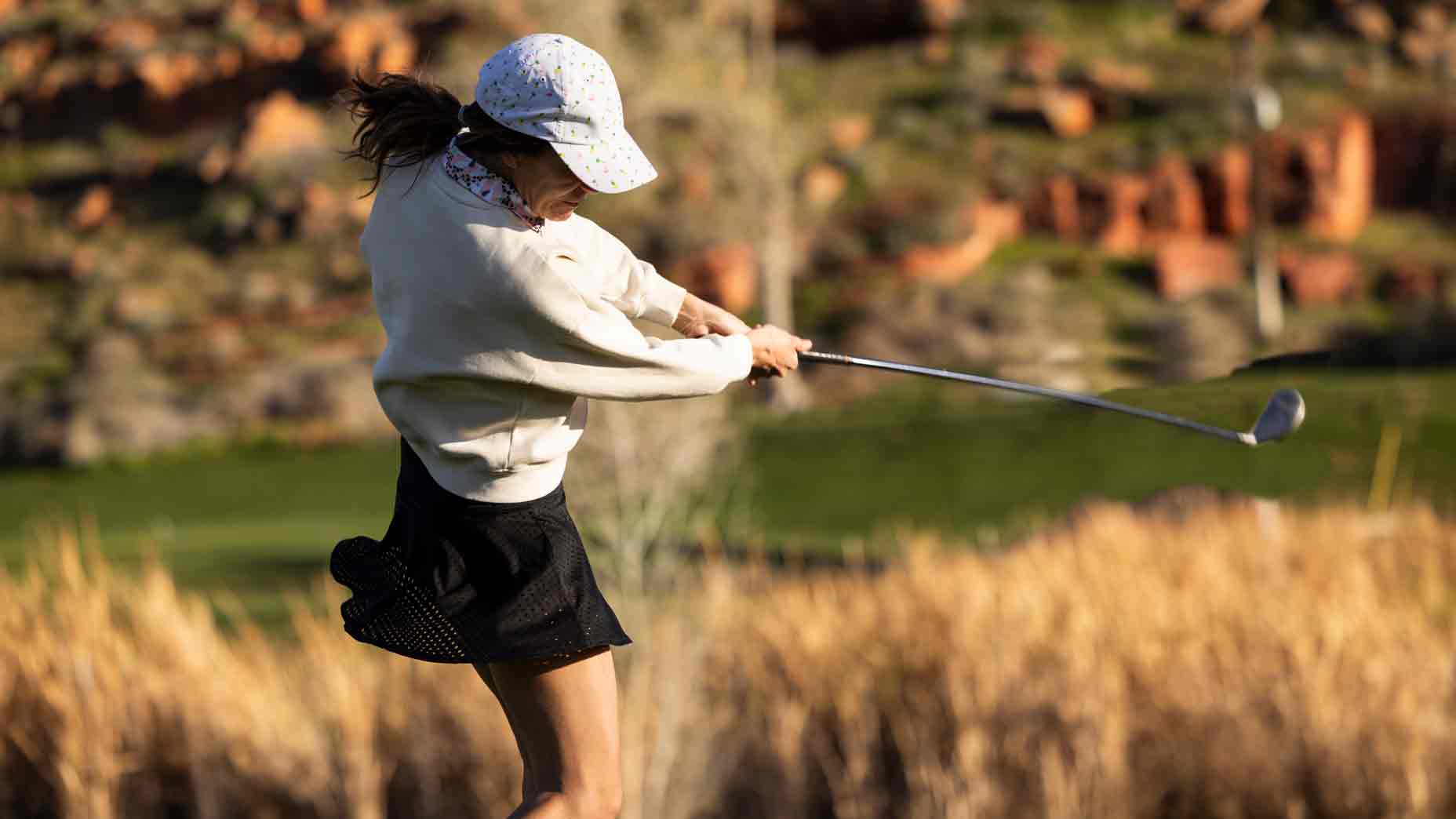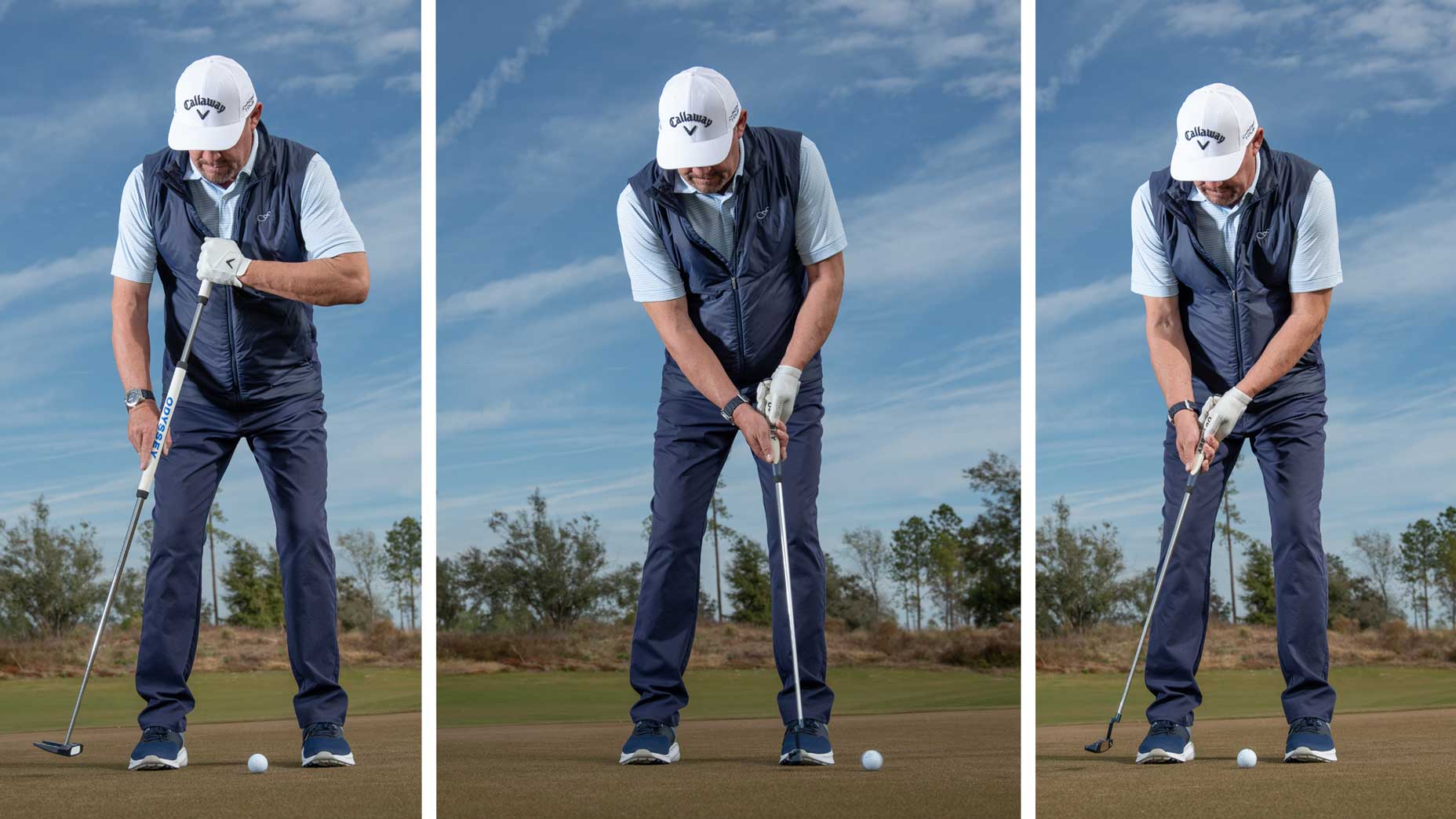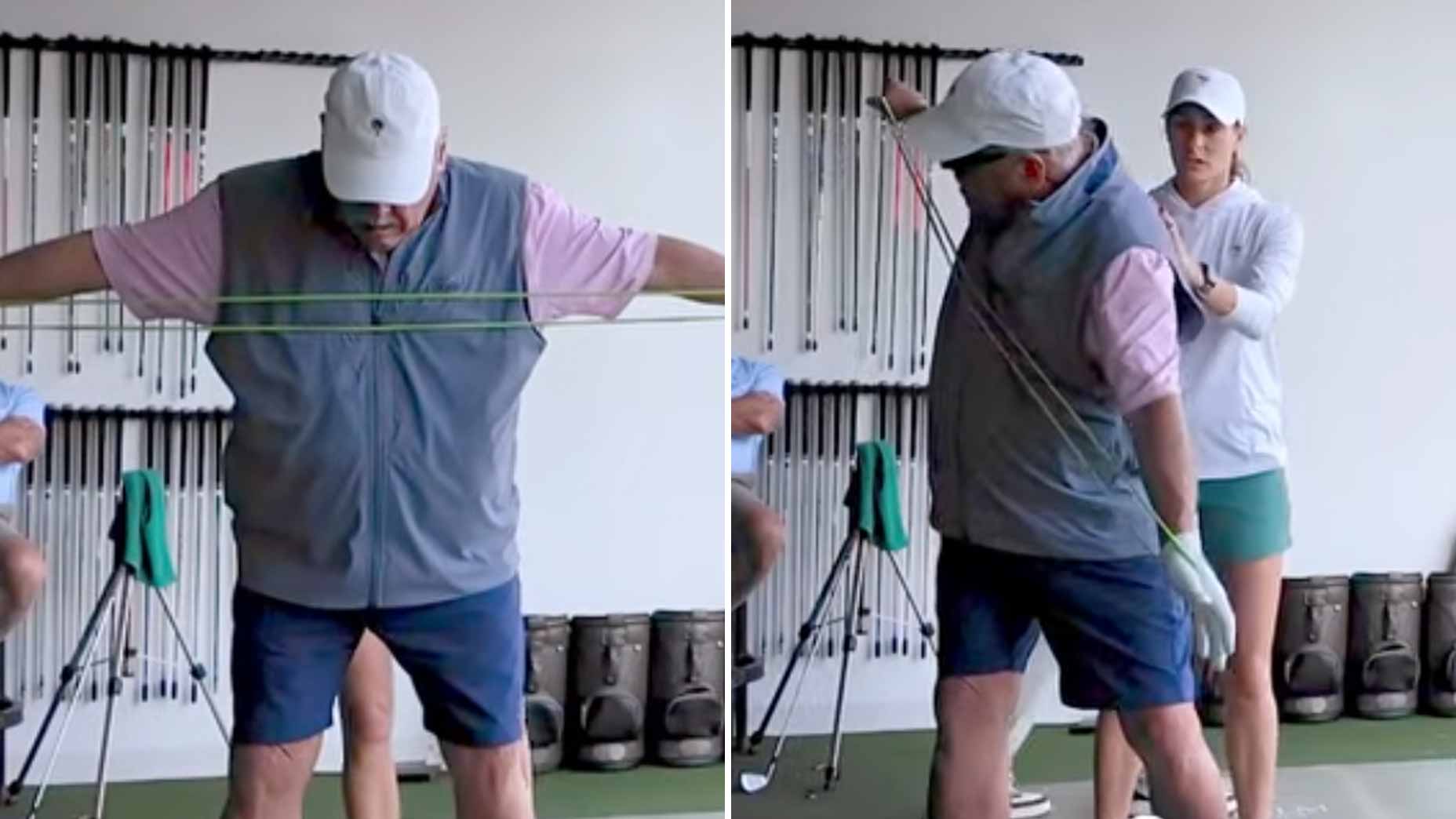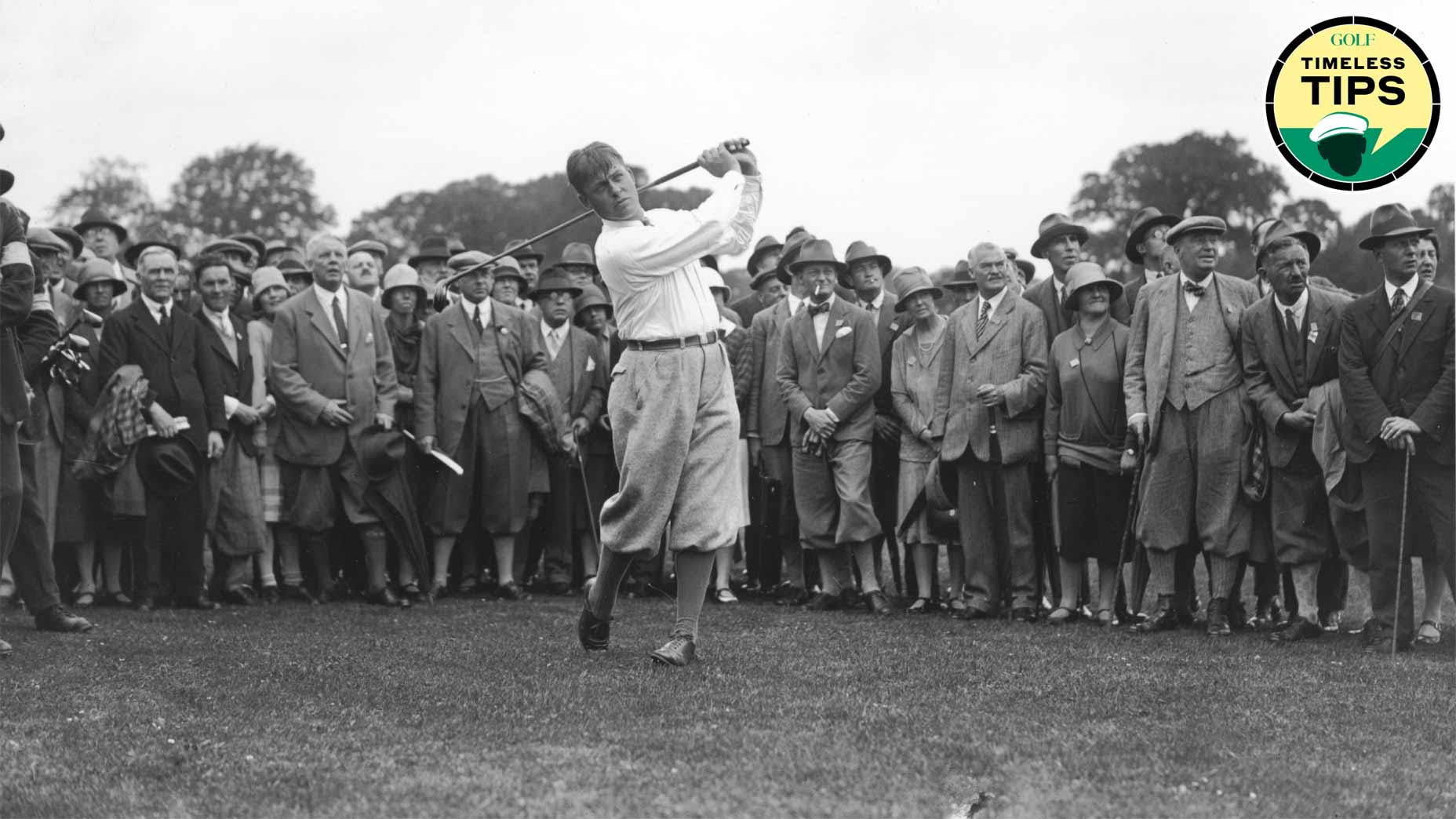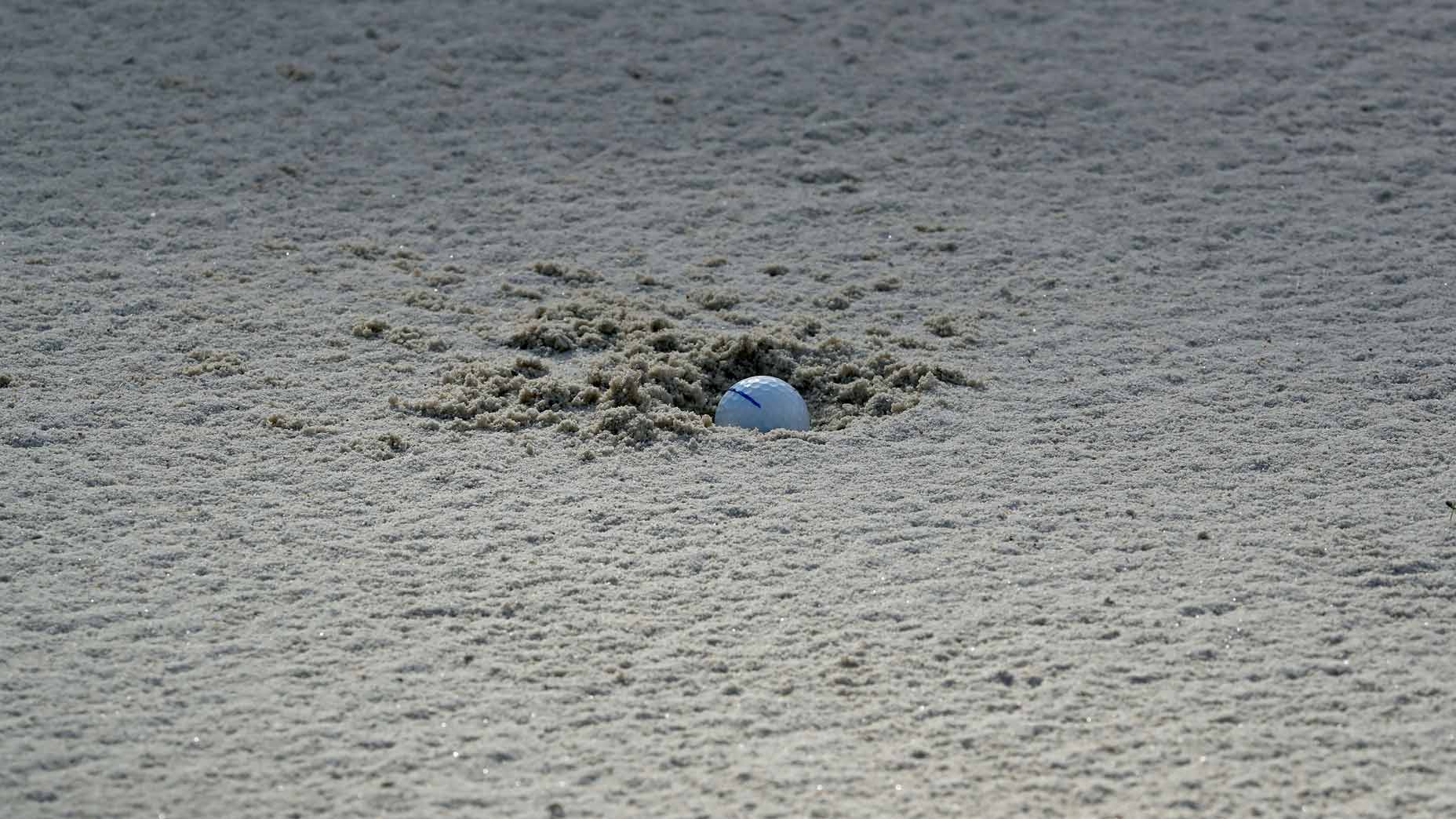The game can be frustrating when you’re just starting out as a beginner golfer, as you probably lack the basic fundamentals needed to make good contact and get the ball into the air.
But don’t fret, because this is a common issue that every player struggles with at one time or another.

True Spec Fitting
10 ways a beginner golfer can get the ball into the air
While it takes practice to hone these skills, by following the 10 tips below, you’ll accelerate the process and be on your way toward hitting it the way you hope for.
1. Watch slow-motion videos of impact
If you’re a beginner golfer, it might be weird to see how a golf ball gets into the air — because it’s kind of counterintuitive. That’s why watching slow-motion videos can be helpful to see the club hitting the ball first and then the ground, which is the proper way to make contact.
One of my favorite videos to watch is actually on YouTube and is something I show my students all the time.
2. Ball, then turf
In order to make great contact, you must make ball-first contact and then hit the ground. By doing this, you’ll create the proper divot on the target side of the ball.
To do this, the clubhead should continue lower when it reaches the ball so it’s still descending at impact. If you understand this, the inclination to scoop or lift the ball should be less.
3. Posture is almost always key
I believe that good posture is the key to making solid contact. Having great golf posture means bending forward from your hips and allowing your hands to hang directly below your shoulders. Being balanced will help the club get all the way down to the ground, creating the type of contact you need to get the ball into the air.
4. Arms extend down during the downswing
To properly get the club head to the ground, you must extend your arms down toward the ground on the downswing. For consistent success with this, focus on your trail arm, which naturally folds in the backswing and needs to extend and straighten during this athletic kind of motion. You can practice this sensation by simply throwing a ball into the ground from your golf posture.
5. Weight moves forward
If you’re a beginner golfer who often leans back to try and lift the ball, this is your reminder to avoid doing so. Instead, you must naturally move your weight towards the lead foot on your down and forward swing, which helps the club make contact with the ground after impacting the golf ball. When you fall back, you’re likely hitting the ground first, which produces a fat shot.
6. Break tons of tees
A good way to learn ball-first contact is by hitting off a low tee. I find that there’s less of an inclination to lift the ball when it’s teed up versus when it rests on the ground. So tee it up as high as you need to at first and try to break the tee with your clubhead as you swing. Do this over and over, lowering the tee as your ball-striking improves.
7. Hit the forward tee
If you’re a more advanced golfer, a good way to practice breaking tees is by placing one into the ground on the target side of the golf ball.
When you swing, your club should hit and sweep the tee right off the ground and just barely brush the grass. This is an easy way to train yourself to hit the ground as your weight moves forward after impact, and allows for a great visual as well.
8. Scrape drill
Another good ball-striking drill, you can use this whether you’re practicing or playing.
Start from address and scrape the grass on a semi-circle going forward (so don’t make any backswing). When you do this, really press the clubhead into the ground, allowing your trail heel to come up. This is what your forward swing should do, and can help those players who tend to top or thin the ball.
A good training aid to practice this drill on from home is the Divot Board.
9. Hitting the ground is OK
Too many beginner golfers seem to think that hitting the ground is a bad thing, so they often avoid doing it at all costs. But you must change your mind if you’re seeking better ball-striking ability.
Understand that hitting the ground is necessary to get the ball into the air, but make sure you know where it happens — after impact and on the target side of the ball, not before.
10. Use a balanced finish
You should always finish your golf swing in balance, making sure you hold this position until the ball lands. By doing this, it’ll give you the opportunity to check that your trail heel came up off the ground so that your weight is forward and towards the target.

Sure-Strike Training Aid by Sure Golf
View Product
